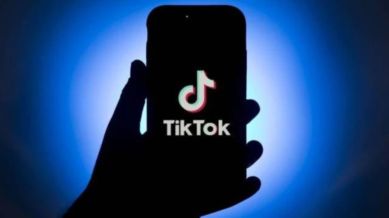Stay updated with the latest - Click here to follow us on Instagram
Trump requests Supreme Court to put TikTok ban on hold
The law in question, passed by Congress in April, requires TikTok’s Chinese parent company, ByteDance, to sell the platform or face a nationwide ban.

President-elect Donald Trump has requested the US Supreme Court to delay the enforcement of a law that could ban TikTok or force its sale to an American company. Trump argued that his administration should be given time after he takes office to explore a political solution to the issue.
In an amicus brief filed on Friday, Trump’s legal team stated, “President Trump takes no position on the underlying merits of this dispute. Instead, he respectfully requests that the Court consider staying the Act’s deadline for divestment of January 19, 2025, while it considers the merits of this case”, reported by Associated Press (AP).
monthly limit of free stories.
with an Express account.
The law in question, passed by Congress in April, requires TikTok’s Chinese parent company, ByteDance, to sell the platform or face a nationwide ban. TikTok, which has over 170 million users in the United States, has appealed to the Supreme Court to strike down the legislation, arguing that it infringes on free speech rights protected by the First Amendment.
Oral arguments are scheduled for 10 January, with the ban or forced divestment set to take effect on 19 January—one day before Trump assumes office.
Trump’s stance marks a reversal from 2020 when, as president, he sought to block TikTok and force its sale due to its Chinese ownership. However, Trump has since softened his position, reportedly meeting TikTok CEO Shou Zi Chew in December and expressing a “warm spot” for the platform, as reported by The Guardian.
“I favour allowing TikTok to operate in the United States, at least for now,” Trump was quoted as saying during a December meeting, adding that the app had garnered billions of views during his presidential campaign.
Free speech advocates have argued that banning TikTok would mimic the censorship tactics of authoritarian regimes. However, the US Department of Justice and a coalition of 22 state attorneys general led by Montana Attorney General Austin Knudsen maintain that Chinese ownership of the app poses a national security risk.
TikTok has repeatedly denied allegations of ties to the Chinese government, stating that US user data is stored on American servers operated by Oracle and that content moderation decisions for US users are made within the country.
The Supreme Court’s decision on whether to uphold the law or delay its implementation could have significant implications for TikTok’s future in the United States.